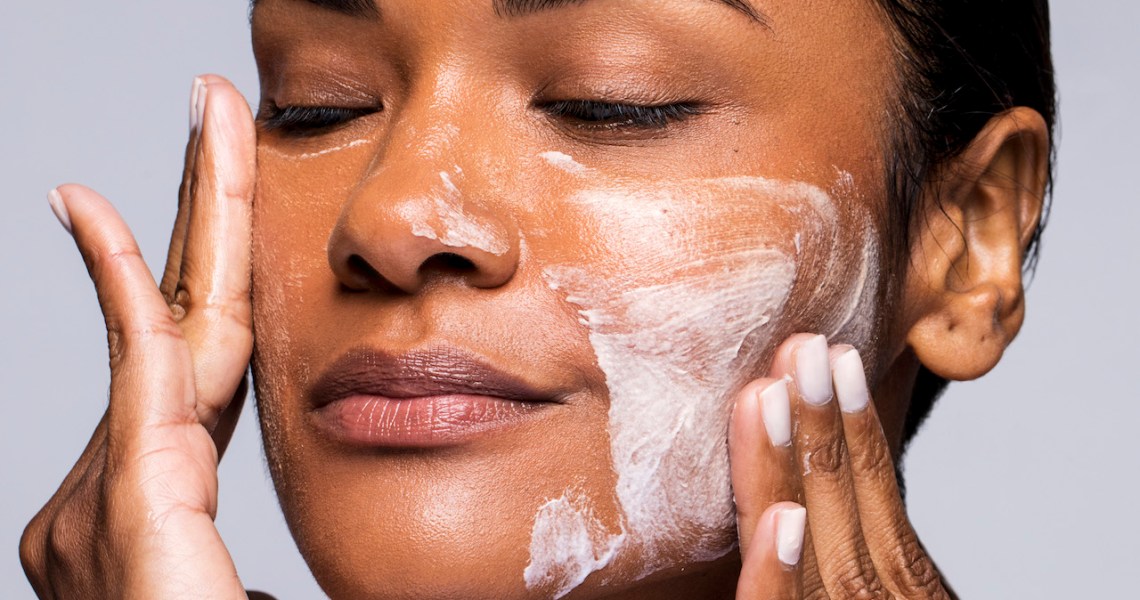While some celebrities and influencers have been able to surreptitiously get Botox or filler treatments, in spite of social distancing guidelines, the vast majority of consumers are searching for at-home alternatives to clinical procedures.
The U.S. has seen online sales increases in categories that could serve as alternatives for physical dermatologist or aesthetician treatments. For skin-care e-tailer Dermstore, purchases of tools such as microneedling devices were up 150% year-over-year in March and April, while exfoliation products were up 350%.
Beth Santos, Dermstore’s vice president of merchandising, said these increases “would indicate that people are making the decision to purchase or opt into those things when they hadn’t before, because they can’t get to the dermatologist.”
“There’s nothing that’s really intended to replace an in-office treatment,” said Santos. “But there are products like peels, exfoliators and devices that will mimic results that you get in a derm office or extend the life of your results that you [already] got.”
Use of clinical cosmetic procedures is widespread. In 2018, 15.8 million minimally invasive cosmetic procedures were performed in the U.S., according to the American Society for Plastic Surgeons. An estimated 11 million Americans used Botox after it was approved for cosmetic use, from 2002 through 2017. In 2018, over 1.8 million botulinum toxin procedures (including Botox and other brands) were performed in the United States, according to the American Society for Aesthetic Plastic Surgery. But Botox lasts about four to six months, meaning that consumers and celebrities alike who did not receive a recent tune-up are starting to get desperate as the quarantine period drags on.
Beyond Botox alternatives, lips are another area where people are placing their attention. Dermstore has seen a 200% increase in sales of lip exfoliators and plumpers during the quarantine, as lip injections are also off the table. Lips are “a big category that’s been seeing a lot of attention, in terms of procedures,” said Santos. “When you start seeing more people getting lip fillers, you’ll start seeing them buy things that help take care of their lips. It’s [what] we call protecting your investment.”
Dr. Brandt, a skin-care brand dedicated to offering at-home alternatives to in-office facials and injections, saw a 25% year-over-year increase in its online sales for March and April. Its best-selling product is a microdermabrasion exfoliant, referencing the popular clinical procedure. Similarly, consumers are also interested in at-home facials, as they remain unable to visit spas or aestheticians.
Ad position: web_incontent_pos1
“A lot of masks have been growing [in sales], which were definitely not our best sellers,” said Stephane Colleu, the president and CEO of Dr. Brandt, of the brand’s magnetic mask and its oxygen mask.
These products are also being marketed as part of an at-home self-care routine, a topic that has taken off on Instagram as a result of the shutdowns.
“Customers are looking to leverage some of this time at home, to indulge a little bit more self care,” said Santos.
“We’ve been promoting much more the mental wellness, diet, exercise, all these matters,” through Instagram Live tutorials with the brand, said Colleu, “to ensure all the aspects of self-care will be covered.”
But there have also been reports of home procedures and facials gone wrong, when people have tried to imitate professional treatments with over-zealous exfoliation.
Ad position: web_incontent_pos2
“People are at home, and they’re kind of over-masking,” said Dr. Joshua Zeichner, director of cosmetic and clinical research at Mount Sinai in New York City. “They’re trying out new products that perhaps they wouldn’t have been trying out normally. Maybe you’re doing that peel that you normally wouldn’t have done because you couldn’t take the downtime.”




